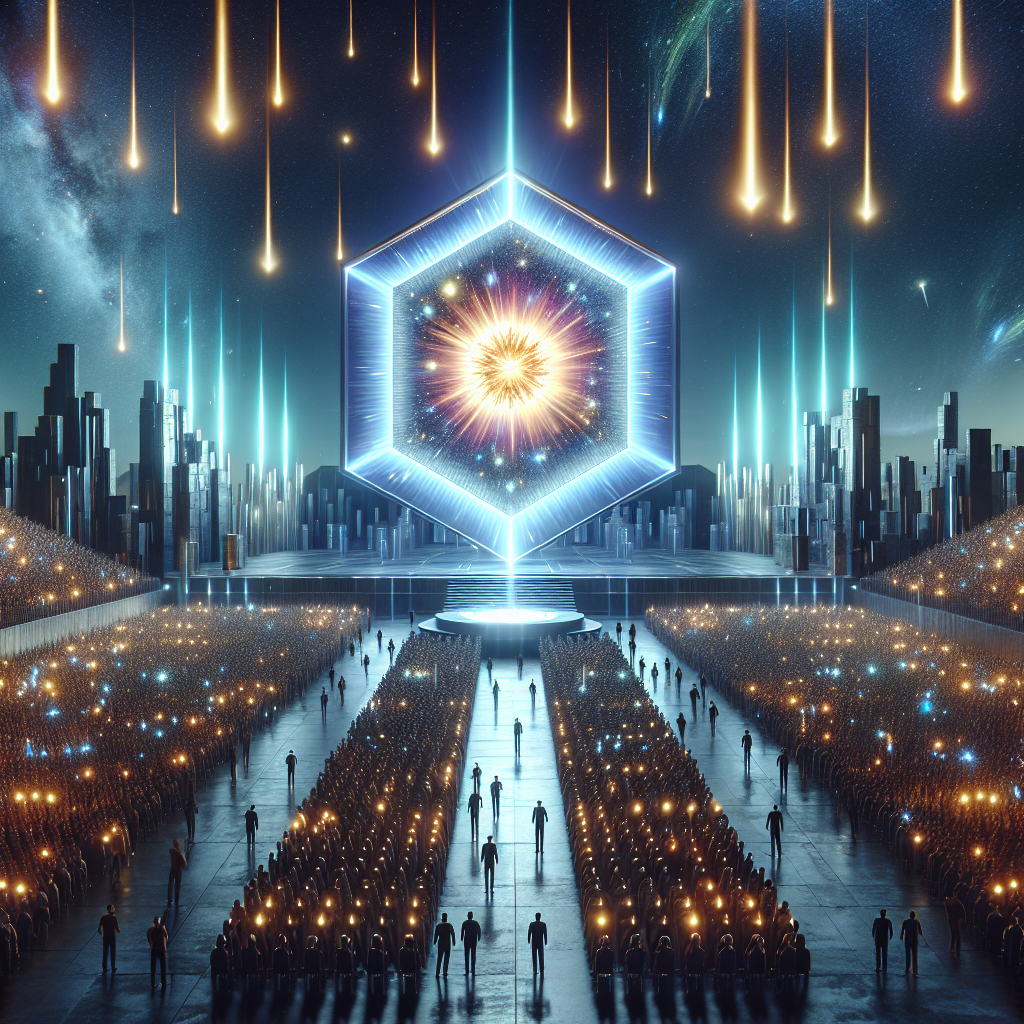Intel's Meteor Lake: A Promising Sky or Overcast with Hype?
Intel’s roll-out of Meteor Lake has been wrapped in promises and thunderous expectations. Yet when the veil was lifted, what lay beneath has left the tech community with mixed emotions and a lingering sense of déjà vu. Is this the phoenix rise from the ashes of a company ready to reclaim its throne? Or is it merely a flicker in the dark, indicating that the road to supremacy is still a hike too steep for Intel? Let’s unwrap the layers of this conundrum with a zest that could leave even the most neutral of silicon spectators a tad tangy.
Intel's Big Talk: The Centrino Moment Reimagined
Centrino was a brand synonymous with laptop revolution. An era where Intel became the byword for mobile performance and connectivity. Yet, in the ambitious correlation of Centrino’s past glories with Meteor Lake's potential future, Intel's CEO Pat Gelsinger has set the stage for a spectacle—or a spectacular fall.
But what exactly is Meteor Lake touted to be? A chip series that promises unmatched efficiency, stellar performance, and AI capabilities that could make its competitors gawk in disbelief. Except, when the curtains were drawn, what we found was an ensemble that perhaps wasn't ready to perform.
The Performance Puzzle: Missing Pieces in Meteor Lake
Is "excels in idleness" the best that can be said about Meteor Lake’s efficiency? When the tech fraternity expected a marathon runner, did Intel present a sprinter who's only fast in bursts? The numbers game is a tricky play, and while Intel flaunts efficiency gains in scenarios seeming as rare as hen's teeth, the real-world performance reviews chuck a bucket of cold water on these fiery claims.
The AI performance that was supposed to be the crown jewel of Meteor Lake ties with AMD’s last-gen products. A tie with the past is hardly a step toward the future. Then there's the multi-threading debacle, where despite boasting more cores, Intel doesn't decisively trounce the competition. Could it be that this lake is too shallow for the high dive aspirations of Intel?
The Not-So-Cordial Welcome of Meteor Lake
Intel, in an uncharacteristic manner, limited the flow of review samples to the tech gurus known for their deep dives and meticulous analyses. It begs the question: why the restraint? The tech community isn't one to shy away from speculations, and the whispers are turning to shouts about overclocked review samples painting a deceptively rosy picture compared to what the consumer gets their hands on.
And there's more. When a loaf of bread is priced like caviar, consumers expect a gourmet experience. However, with Meteor Lake laptops hitting the shelves with slower memory than what was present in review samples, one can't help but feel the crust of this bread might be a bit too hard to chew.
A Leap or Stumble Backwards? The IPC and Efficiency Conundrum
With leaked slides showing Raptor Lake outpacing Meteor Lake in single-threading performance, the question of IPC regression hovers like a dark cloud. If IPC is taking steps back while on a new architecture, has the innovation dial been turned in the wrong direction?
The efficiency narrative faces its own quagmire. Idling efficiency may showcase a green leaf, but if the forest isn't thriving, what good is one leaf? The efficiency that doesn't translate into tangible benefits for the consumer is as good as none. Intel may have reached for the stars, but it seems they've caught a handful of stratosphere instead.
The Ghost of Bulldozer: A Tale of Caution
The specter of AMD's Bulldozer looms over Meteor Lake. Bulldozer, with its big promises and bigger letdowns, also had its day in the sun before the shadows cast by underwhelming performance engulfed it. Are we witnessing a similar play by Intel, or is this just a stumble on the path to success?
Bulldozer's tale was a stark reminder that innovation must be coupled with execution. A shiny new architecture means little if it does not push the product forward. The industry and consumers are wary, thanks to history's harsh lessons. Has Meteor Lake learned from these lessons, or is it bound to repeat them?
In wrapping up this analysis, Intel’s Meteor Lake sits on the precipice. On one side lies the valley of redemption, where the fruits of labor could pay off handsomely. On the other, an abyss of skepticism that could see the company's ambitions swallowed whole.
Only time will tell if Meteor Lake is the dawn of a new age for Intel or merely a false sunrise. As the sky over Silicon Valley gets cloudy, the tech world watches with bated breath, hoping for clarity and sunshine.
For those yearning to dig deeper into the vast expanse of CPU wars and technological triumphs, you may find insightful information on sites like AnandTech and Tom's Hardware.
Related News
- Intel's Meteor Lake Missteps: A Comprehensive Breakdown
- Threadripper's Troubles and Meteor Lake's Murky Future: An In-Depth Look at the CPU Market Landscape
- Navigating the Murky Waters of Modern Computing: Intel's Snags and AMD's Momentum
- The Intriguing State of Silicon: AMD and Intel's Ongoing Dance
- AMD's Hail Mary in AI and Mobile Computing: A Revolution or a Calculated Gambit?
